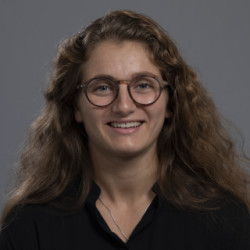I get a lot of questions as a medical student. These inquiries usually pop up at family gatherings, nights out with friends, or in the hospital cafeteria. People will pull me aside and in hushed tones ask, “Does this rash look concerning?” or “Am I really not allowed to drink on antibiotics?”
Most of the questions I get volleyed my way aren’t ones I can confidently answer. As a second-year medical student who hasn’t started rotations, I understand that clinical expertise comes with experience, practice, and veteran gestalt. To those questions, I answer as honestly as I can and recommend seeking care in a licensed professional. It’s disappointing to not be helpful (yet) to people, but my limitations are something I’ve come to accept.
This past summer was the first time someone asked me something I definitely couldn’t answer, and it made me feel unsettled. I was at a barbecue in the suburbs of Chicago, when someone’s boisterous, lovable uncle pulled me aside and said, “So kid, what kind of doctor do you wanna be?”
Unlike the usual inquiries I get, this one was personal. He was asking me about a specialty, about that huge decision that looms over the heads of all medical students as soon as they slip into their white coats during the first-year induction ceremony. Not only did I not know how to answer this question, but I felt a sense of personal conflict in not being able to. I answered him in the most truthful way I knew how. “A good one.”
It took him a moment to know what I meant, and then he jokingly punched my shoulder. “Oh yeah? And exactly what specialty will allow you to become one of those ‘good doctors’?”
“Well, I’m still trying to figure that out, but I’ll keep you posted.” We both laughed and cheers-ed our iced tea glasses. I took a sip from my drink, trying to mask how my answer had only reinforced the existential crisis that topic stirred within me.
In all honesty, the idea of choosing a specialty had ignited a whirlwind of worry. I was aiming to be a good doctor, but what decisions should I make to ensure that came true? What specialty would bring out the best qualities in me so I can do the most good for people? I constructed top specialties lists based on various criteria; one was based on my personal strengths, another on the academic courses I performed best in, a third on the feedback I got from my clinical instructors, etc. I spoke to several upperclassmen and clinicians about my dilemma, who told me it was too early for me to worry. I fielded my concerns to a college nursing friend from Boston, who explained that happy doctors made the best doctors. And so, I set out to find some happy doctors, and see what they thought about the specialty search.
The first happy doctor I found was a general surgeon attending. Several of my classmates shadowed her the semester before, and she had established a reputation among my peers as “the critical care surgeon who keeps it real.” I knew she must have insight to share and was delighted when she answered me after I sent her a cold email about observing her. When I asked her about why she chose general surgery, she said that she loved her specialty because every day looked different. “Every time I step through the doors, I don’t know what each day will hold. A little bit of adventure, a little bit of chaos, a whole lot of fun.” The unpredictable, exciting nature of her day-to-day life was what brought her joy.
Next up was a calm, level-headed resident anesthesiologist, who I struck up a conversation with in the SICU breakroom after a bedside session one day. He explained to me he had transferred from a psychiatry program and was loving his time in anesthesia so far. “I love that I’m working behind the scenes, and I get a panoramic view of what is going on with the patient minute by minute. It’s methodical, calculated, and strategic from start to finish.” His love for anesthesiology came from the focus and stamina that his days demanded.
Finally, I talked to a quirky, charismatic retina fellow who I was introduced to at the annual medical student “Eye Fair.” “I know exactly what my day in the clinic and OR will look like,” he told me, “which makes it possible to look forward to what I’m going to do at work while also being able to pick up my girls from school.” The predictability of the day and his ability to carry out his responsibilities as a dad were a major source of his happiness.
Each physician gave me a different answer to why they chose their specialty, but their answers shared a theme: they knew what types of day-to-day experiences they valued, and they factored this into selecting their specialties. By doing this, they maximized the good they could do for patients by, in part, maximizing their ability to be happy in their daily lives on the job.
This revelation didn’t unveil the mystery of what my best fit specialty is. It didn’t answer the question I was originally seeking, but rather, illuminated a more profound, meaningful answer. Different people will gravitate toward different specialties because the nature of the work provides different days. You can have an extremely happy dermatologist and an extremely happy radiologist, but their happiness will be for different reasons and come from different sources. Happiness is not the key to choosing a specialty, but it is a major consideration, both for personal fulfillment and the quality of patient care one can provide.
As of now, I am still searching for my specialty, but the journey is more enjoyable, and I am giving myself more grace in the process. Many factors are shaping the specialties I find myself gravitating toward, including academic interests, clinical mission, and personal strengths, but I am now aware of what kind of feeling I want to experience in my workday.
Now, when someone asks, “What kind of doctor do you want to be?”, I answer confidently by saying “A good one, and a happy one.”
How do you find happiness in your day-to-day as a clinician? Share in the comments below!
Fae Kayarian is a second-year medical student at Rush Medical College of Rush University Medical Center in Chicago, IL. As a future physician, she aims to combine clinical medicine, medical device research, and the medical humanities to address the changing physical and social landscapes of our world. In her free time, she enjoys long bike rides, lifting heavy things at the gym, and spending time with loved ones.
Image by z_wei / Getty







